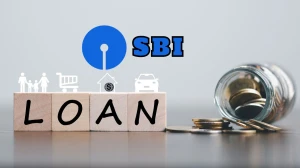
Is Mortgage Loan Interest Tax Deductible?
Mortgage loan Interest is subject to the various changes since its inception on American soil; some people are eligible based on the IRS code, which was guided by the new changes made by the TCJA Act.
by Damodharan N
Published Apr 18, 2024 | Updated Apr 18, 2024 | 📖 6 min read
Is Mortgage Loan Interest Tax Deductible?
The mortgage loan interest is tax deductible according to the IRS Code, and taxpayers need to itemize the deductions based on their tax filings. Home mortgage interest is the amount of interest that you pay for your home, either a primary residence or a second home, by using your home as collateral with the right of ownership.
Let's look at the eligibility criteria for taxpayers.
- Taxpayers need to fill out Form 1040 or 1040-SR and itemize their deductions on Schedule A.
- The eligible mortgage needs to be secured debt and have a qualified home.
The definitions of this secured debt and qualified home are as follows:
Secured Debt:
A debt is called secured debt when a borrower signs an instrument that is used as proof of ownership, like a land contract or home mortgage. And it won't be considered secured debt. when there is a dispute regarding that land contract or home involved in court.
Qualified Home:
A home is said to be a qualified home if it is a condominium, house, mobile home, cooperative, house trailer, boat, or similar property that has toilet, sleeping, and cooking facilities.
In order to get the full mortgage loan interest tax deducted, the IRS has three tricky logic maps based on the date of the mortgage, the amount of the mortgage, and the usage of the mortgage proceeds. Based on this, the IRS has come up with three board categories.
- The first is grandfather debt. If you have mortgage debt on or before October 13, 1987, then your debt is considered grandfather debt.
- The second one is that if you or your married spouse have a mortgage and are doing a joint filing return with a cut-off date of October 13, 1987, until December 16, 2017, to buy a new home or improve a home, this is called home acquisition debt. And the size of this grandfather debt will be $1 million or less ($500,000 married and filing separately).
- An exception to this is a binding contract that involves the purchase of the principal residence from December 15, 2017, to January 1, 2018, and brought the home before April 1, 2018 via that agreement. And that the particular home acquired will be considered brought before the December 16, 2017 acquisition.
- The third mortgage that you or your spouse incurred after December 15, 2017, by doing the joint filing return has brought a new home or upgraded it as of 2023 and has $750,000 or less grandfather debt (married if you are filled separately, then that amount is $375,000).
If these categories do not fit your mortgage loan category for full deductions according to the IRS and for varying deductions, there will be a separate topic covering the limitations based on mortgage loan interest tax deductible.
But we cannot assure you how the IRS will see your mortgage loan interest tax deduction. In recent years, home mortgage loan interest tax deductions have been decreasing due to the cumbersome process, and the limit for deductions has been brought down by $750,000 from the earlier $1 million. This was due to the Tax Cuts and Jobs Act 2017 (TCJA).
What is Mortgage Loan Interest?
The mortgage loan Interest is based on the home mortgage that you recently took as a borrower, for which you are now paying the interest. There are various home mortgage types, but the most common are home equity loans and HELOCs (Home Equity Line of Credit).
Both of them use the home as collateral but offer either a fixed or variable interest rate, which is how most banks get their cost of money being borrowed paid through. It is one of the fundamental aspects of the bank, the others being savings and investment bonds.
The failure of mortgage loan interest payments led to disastrous consequences across the world, which was how the 2008 financial crisis unfolded. It was the classic case of the housing bubble in the US market, and the subsequent collapse of the big banks showed the importance of home mortgage debt, particularly subprime mortgages, which was clearly explained in the 2015 Hollywood movie Bigshot.
How Mortgage Loan Interest Tax is Calculated?
For the year 2024, the amount will be calculated based on the $750,000 loan limit for individual fillings as single, married joint fillings, or head of household fillings. For those who are married but file separately, the loan amount should be $375,000.
Apart from these loan amount limits for tax calculation, the Tax Cuts and Jobs Act had made every tax payer who earlier did itemized taxation lose some amount of tax deduction benefit before this act. This change in limit will expire after 2025.
To calculate the mortgage loan interest tax, taxpayers should upfront know the interest that they are paying on the on the loan amount based on the IRS tax code, which we have disclosed before, and calculate the deduction.
Limitations of Mortgage Loan Interest Tax Deduction
The Mortgage Loan Interest Tax Deduction has two broad limitations: home acquisition debt and grandfather debt. Both of these debts are based on the certian cut-off date and mortgage loan amount.
Home acquisition debt:
The home acquisition debt mortgage is taken after the cutoff date of October 13, 1987, to buy or build a new home. The amount limits are set based on the second category of mortgage loan interest tax deduction, which was explained in the first part of the article.
Refinancing of the debt through a secured loan is considered to be home acquisition debt. The level of debt is based on the old mortgage principal. The date of the mortgage and the cost of home improvements all fall under this category of home acquisition debt.
Grandfather debt:
The home mortgage loan that taxpayers took out before October 14, 1987, and refinanced through secured qualified home on October 13, 1987, and at all times after that, how one uses the proceeds of the debt does not matter.
If the refinance of the grandfather debt occurs after the cut-off date of October 13, 1987, and it does not cross the principal mortgage amount, then it is still considered grandfather debt.
People who have this mortgage loan type will have fewer tax deductions eligible compared to the previous three categories that were discussed. On top of these limitations, the TCJA has made it worse for some mortgage interest payers.
What Impact does the TCJA have on Mortgage Loan Interest Tax Deduction?
The Tax Cuts and Jobs Act of 2017, which the US Senate passed, was about to reduce tax cuts for the people of America. but instead made it a more cumbersome process for most Americans not eligible for the mortgage loan interest tax deduction.
It made a complete pig’s breakfast of the whole deduction process with itemized deductions and tax-standard deductions under the IRS code. Fortunately, this change will be temporary as the Tax break laws enshrined in the TCJA 2017 will expire in 2025.
So if you are a home buyer and looking to incur home mortgage interest and take your chances, then that's good for you, but if you are looking for the sunset clause of the TCJA 2017, then don't worry; after very sunset, there is always a sunrise.
Is Mortgage Loan Interest Tax Deductible?
1. What is Mortgage Loan Interest?
The mortgage loan interest is paying the interest on your current mortgage for your home.
2. Are mortgage loan interest tax deductions still applicable?
Yes, it is still applicable based on tax filing, mortgage date, and mortgage loan limit.
3. What is grandfather debt?
The home mortgage debt that was taken before October 14, 1987, is said to be grandfather debt.
4. What is the TCJA Act 2017?
The TCJA Act of 2017 was to bring about a tax break for the people of America with a sunset clause for 2025.
5. What is secured debt?
The secured debt is an instrument that borrowers sign as proof of ownership for land contracts or home mortgages.




